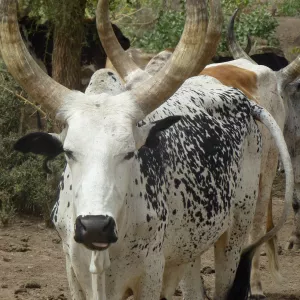Mapping national livestock routes in Ethiopia
In a collaborative effort to enhance pastoral livelihoods and regional economic stability, the Supporting Pastoralism and Agriculture in Recurrent and Protracted Crises (SPARC) program is partnering with the Intergovernmental Authority on Development (IGAD) Centre for Pastoral Areas and Livestock Development (ICPALD) and the governments of Ethiopia and Kenya to create national maps of livestock routes in the two countries, the first

Mapping national livestock routes in Ethiopia
In a collaborative effort to enhance pastoral livelihoods and regional economic stability, the Supporting Pastoralism and Agriculture in Recurrent and Protracted Crises (SPARC) program is partnering with the Intergovernmental Authority on Development (IGAD) Centre for Pastoral Areas and Livestock Development (ICPALD) and the governments of Ethiopia and Kenya to create national maps of livestock routes in the two countries, the first time this is being done in both nations.
The partnership is part of the implementation of the IGAD Transhumance Protocol.
Pastoralism relies on livestock mobility for animals to access seasonal grazing areas, water sources and markets.
This mobility is increasingly threatened by land use changes, encroachment and inadequate policy frameworks.
Blocked or fragmented livestock corridors reduce the ability of pastoralists to cope with drought, intensify resource conflicts and lead to land degradation.
The initiative to map livestock routes in Ethiopia and Kenya opened with a workshop where government experts from across livestock-producing areas of Ethiopia, SPARC researchers and members of ICPALD began an initial mapping of primary routes.
The meeting, held on 26-28 February 2025 in Adama, Ethiopia, marked the first comprehensive attempt to document the exact locations and status of livestock routes and supporting services across the country.
The process of mapping livestock routes will produce detailed, national-level maps that include data on the functionality of livestock routes, the distribution of water points, veterinary posts, markets, and grazing and resting areas used by pastoralists.
Policymakers will be able to use digital versions of the maps to make decisions about protecting routes and providing services along them.
This includes land use and development planning, for natural resource management, and for service delivery for livestock and people.
Photo: Cattle in Afar, Ethiopia (ILRI/Fiona Flintan)

